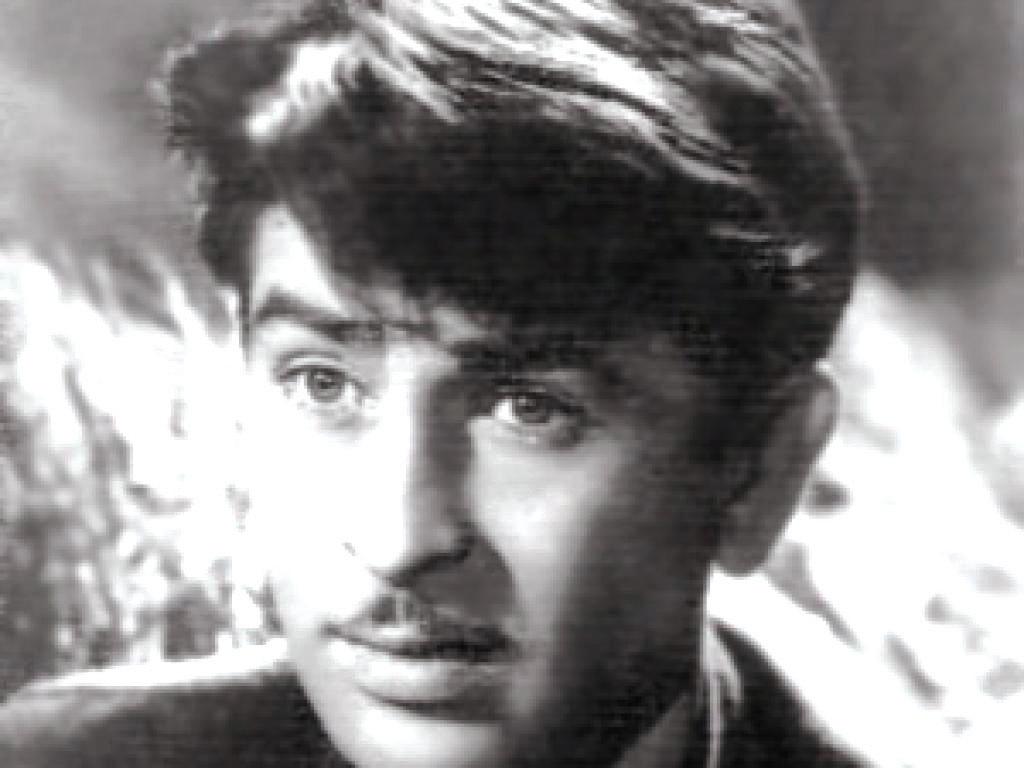
6 minute read
The Showman personified
from 2010-07 Melbourne
by Indian Link
Raj Kapoor’s social conscience came to the fore through his movies which highlighted the plight of the poor and destitute, writes
MALLI IYER
Raj Kapoor was popularly known as the “Charlie Chaplin of India”, a well deserved accolade for one of the greats of Indian cinema. This versatile actor stood head and shoulders above all his contemporaries, and was an exemplary part of a filmy dynasty headed by the legendary Prithiviraj Kapoor. Following his own career and that of his brothers Shammi and Shashi, the next generation came up with Randhir, Rishi and Rajiv, and the fourth generation with its glamorous successors in Karishma, Kareena and Ranbir are wowing audiences today.
Raj Kapoor was born in 1924, in a Pathan family at Lyallpur (near Peshawar). He must have had films in his genes as he began acting at the young age of 11 and by the time he turned 23, he had a major role opposite Madhubala in Kidar Sharma’s Neel Kamal Tragically, Raj died of severe complications caused by asthma at the comparatively young age of 63. At the time of his death, he was a producer, director, editor, script writer and was adept at camera work. His collection of awards, nominations and titles conferred upon him would be the envy of the film industry’s top artistes. He received 16 Filmfare awards; his films Awara (1951) and Boot Polish (1954) were nominated for the Palme D’or at the Cannes Film Festival; he was awarded the Padma Bhushan in 1971, and received the Dadasaheb Phalke Award in 1987. Raj Kapoor achieved an international stature at the peak of his career as he was honoured and acclaimed in the Middle East, Soviet Union and all over South East Asia. One of the youngest entrepreneurs in the industry, he launched RK Films at the age of 24 and later, RK Studios. Raj conceptualised many of his films to convey one or more social messages – either ills within society, traditions like widow remarriage that should be jettisoned, or social taboos like dowry, exploitation of children, among others.
(Raj) could easily identify himself with the scum of society like petty thieves, pickpockets, jailbirds, strugglers and the homeles
A champion of the poor Raj Kapoor’s tramp-like personality was likened to Charlie Chaplin, but using his films like Boot Polish, Awara and Mera Naam Joker as the medium, he bemoaned the lot of the ‘have-nots’ in Indian society. He even dared to dream of a Utopian future for the poorest children on the streets of Bombay in Boot Polish
The song Nanhe munne bacchhey teri mutthi mein kya hai sung by street urchins typified his dream. He could easily identify himself with the scum of society like petty thieves, pickpockets, jailbirds, strugglers and the homeless. In Awara he even compared his own likeness of living with that of a dog. In Shree 420 his famous song Joota hai Japani, yeh patloon inglisthani, sar pe laal topi Roosi, phir bhi dil hai Hindustani portrayed his love of the simple things in life in a socialistic Nehruvian plan for India.
Raj often saw the women and the poor of India as victims of a social system where inequality of wealth and day-to-day comforts were more the norm than the exception, as well as a historical fact. He was a rebel who was a pacifist at heart, and believed that love would conquer the problems of the world more than use of force or violence. His film Jis Desh Mein Ganga Behti Hai reinforces this view. His film Mera Naam Joker was almost autobiographical and took six long years in constructing the character that he played himself.
A visionary and a true romantic
Raj Kapoor was a romantic to the core as can be gauged from his well-publicised affair with Nargis. That he admired his chosen women was no secret. Nargis was his inspiration in several films and he made Aag, Barsaat, Awara and Shree 420, the last being during the peak of his romantic relationship. He chose his heroines not because of their acting prowess or their reputation, but how eminently suited they were to the roles – such as Vyjayantimala in Sangam, Zeenat Aman in Satyam Shivam Sundaram, Dimple Kapadia in Bobby and Mandakini in Ram Teri Ganga Maili Raj was not averse to exposing the female anatomy to create a tasteful appreciation of the character and situation, but not necessarily to titillate the baser instincts of the audience, regardless of whether it was Zeenat Aman’s mini-saree and transparent blouse, Dimple Kapadia’s repeated bikini clad appearances or the scene of Mandakini breastfeeding her infant. In any case, the film censorship regime saw itself as a moral custodian of the people, and prevented any excesses. Almost all his heroines were wronged, oppressed or neglected by misdemeanours of their lovers, partners or family. Perhaps it was Raj’s way of bringing to light the inherent strengths in women, not recognized in the Indian milieu during his lifetime.
Loyalty to his convictions
Raj stuck by his friends and was utterly loyal throughout his life to associates like lyricists Hasrat Jaipuri and Shailendra, his playback voices Mukesh and Manna Dey and his music directors Shanker and Jaikishen. He was an ardent admirer of Lata Mangeshkar’s music and openly admitted it. He did 16 films with Nargis, but had starred opposite almost all the leading ladies of 1960s, ‘70s and ‘80s like Padmini, Mala Sinha, Waheeda Rahman, Hema Malini, Simi Garewal and Padmini Kolhapure.
Raj was a worshipper of Lord Ganesha and each year during the Ganapati festival, RK Studios and their crew had a giant sized Ganesha in the procession – a tradition that is carried on by his family till today. As some of his film titles like Jis Desh Mein Ganga Behti Hai, Ram Teri Ganga Maili and Satyam Shivam Sundaram suggest, he was a patriotic socialist at heart and never missed an opportunity to uplift the downtrodden in society through his films.
Indian cinema has good reason to be proud of Raj Kapoor’s incredible contribution to the industry, which also gave Bollywood an international persona at a time when films from the subcontinent were practically unknown globally.
Laugh out loud
Life Saver
By Julian Moshegov
A goalkeeper was walking along the street one day when he heard screams from a nearby building. He looked up to see smoke billowing from the top and a woman leaning out holding a baby. “Help! Help!” screamed the woman, “I need someone to catch my baby!”
A crowd of onlookers had gathered, but none was confident about catching a baby dropped from such a great height. Then the goalkeeper stepped forward. “I’m a professional goalkeeper,” he called to the woman. “I’m renowned for my safe hands. Drop the baby and I will catch it. For me, it will be just like catching a ball.”
The woman agreed. “Ok, then. When I drop my baby, treat it as if you were catching a ball.”

On a count of three, the woman dropped the baby. Everyone held their breath as the goalkeeper lined himself up to catch it. There was a huge sigh of relief, followed by wild cheering as the goalkeeper caught the baby safely in his arms. Then he bounced it twice on the ground and kicked it 50 yards down the street.
Famous football quotes
Some people think football is a matter of life and death. I assure you, it’s much more serious than that.
Bill Shankly, Scottish football player
The rules of soccer are very simple. Basically it is this: if it moves, kick it. If it doesn’t move, kick it until it does.
Phil Woosnam, Welsh football player
Did you know...
The first FIFA World Cup was held in 1930.
The FIFA World Cup Trophy is made of real gold and weighs 6.2 kgs. It was made in 1970 by an Italian designer. Winners have to return it at every tournament, but they get a gold-plated replica to keep.

Before 1970, there used to be another
Foto Corner
trophy, but it was stolen. It has never been found – it is believed the thieves melted it down for its gold.
FIFA also organises the FIFA Futsal World Championship and the FIFA Beach Soccer World Cup.
The average age of the FIFA 2010 players is 27 years.
I learnt a new word
Clean Sheet: When a goalkeeper doesn’t concede a single goal Manan
Dead Ball: When the ball is ‘dead’ it is temporarily not playable, and neither team may attempt to advance it and or take possession. Devna






Vuvuzela
The goalkeeper is the jewel in the crown and getting at him should be almost impossible. It’s the biggest sin in football to make him do any work.
George Graham, Scottish football player

Whoever invented football should be worshipped as a God.





Hugo Sanchez, Mexican soccer player and coach
The “vuvuzela” is a South African instrument with roots in traditional music. It means “vuvu-ing”, or, making the “vuvu” noise. It could also be related to the word “shower” because it showers the spectators with noise, or maybe simply because it looks like a showerhead










